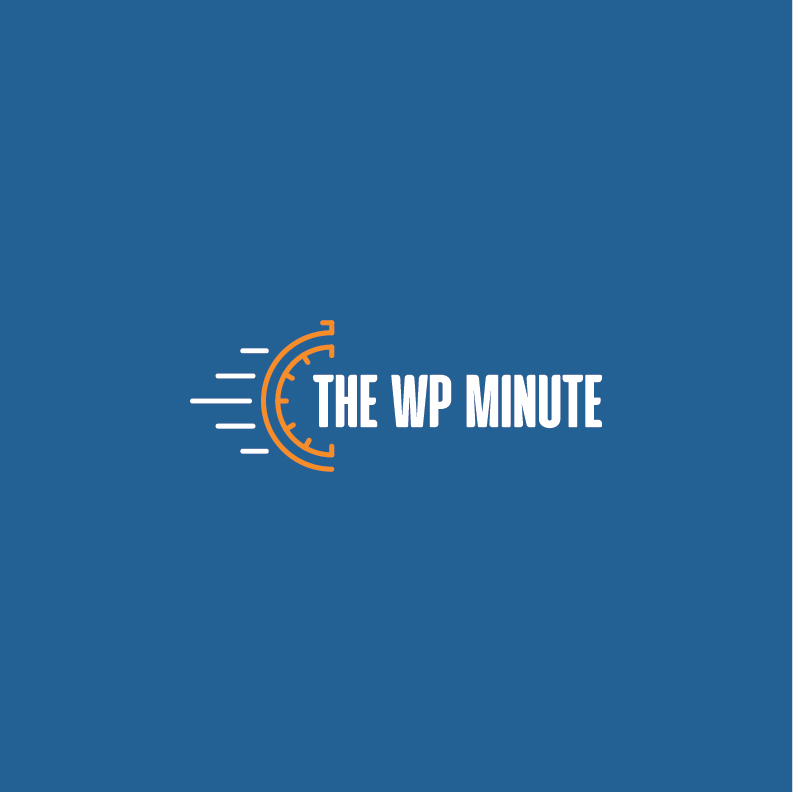We’ve recently heard an earful about web hosts giving back (or lack thereof) to WordPress. Project co-founder and Automattic CEO Matt Mullenweg’s callout of WP Engine has made plenty of waves.
The situation has escalated to a legal battle between Automattic and WP Engine. As always, The WP Minute has you covered with the latest regarding this developing story.
Let’s put aside the fight and the math of who’s doing what for now. The situation got me thinking about a broader issue: What can web hosts do for WordPress? Where can they make the most impact? And how can their work benefit us all?
Even during this time of tumult, I have a few ideas. And apparently, I’m not alone.
Taking a Joint Approach to Improving WordPress
The WordPress project welcomes all types of contributions. Everyone can pitch in – even if they don’t know how to code. Both companies and individuals give their time for the greater good.
Web hosts are uniquely positioned to contribute. They have talent resources available in several areas. There’s plenty of technical knowledge. But there’s also expertise in marketing and support.
These companies have an opportunity to impact WordPress on a holistic level. They could tackle some of the project’s big-picture goals.
Sure, fixing bugs in Gutenberg is helpful. However, that’s a drop in the bucket. There is potential to achieve even more.
Aside from Automattic, individual companies can only do so much. Thus, maybe the best way to make progress is by working together.
What if hosting companies pooled resources to tackle issues?
Maybe it sounds a bit awkward. These companies are competitors, after all. But think of the good it could do for WordPress. And the participants would also reap benefits.
The Scale Consortium is a proof of concept. The group consists of top WordPress agencies. The goal is to promote the content management system (CMS) for enterprise use.
A similar type of organization could bring web hosts together. Granted, its purpose would be different. It’s more about improving WordPress than selling it as a solution. Although, doing so could make the CMS more attractive to users.
An Opportunity to Improve Security
Website security is a top concern for everyone in the ecosystem. Site owners want websites that are malware-free. Agencies and freelancers want to deliver top-quality results to their clients. Developers want to build safe products.
Doing well in this area means fewer headaches – not to mention a better reputation for WordPress. And who wouldn’t want that?
Perhaps no one knows more about this subject than web hosts. They build platforms with security in mind. Plus, they’ve likely seen every type of problem known to humankind. They have used that experience to improve their services.
There are a few ways hosts can improve security:
A WordPress Security Blueprint
A secure website takes more than code. It also requires an optimized hosting environment.
Some hosts secure WordPress better than others. No one wants to give away proprietary secrets. However, it seems like there’s room for cooperation. And some of the data is already shared via a private Slack channel.
In theory, hosts could collaborate on a blueprint for security. It could be a set of standards that define best practices for hosting.
Such a blueprint might include:
- Locking down the WordPress file system to prevent malicious file uploads.
- Requiring two-factor authentication (2FA) for site administrators.
- Adding device recognition capabilities to prevent stolen session cookies.
- Implementing security scanning at the server level.
- Isolating WordPress installs to prevent the spread of malware.
These are just ideas. But the goal is to ensure that hosts are doing the basics. That would improve security across the board.
Site owners wouldn’t have to worry about their host leaving the door open for hackers. And lowering the rate of malware infections would be a boon to everyone.
Hosts could market their participation in the program via a badge or other materials. It’s another way to build trust for WordPress as a whole.
Developing a New WordPress Security Paradigm
A blueprint covers the hosting side of things. However, hosts could also help improve the security of WordPress core.
That’s not to say the software isn’t secure. But it could benefit from a detailed review. Things move quickly, after all.
Imagine a collaborative effort to revamp WordPress security. Participants could dig through everything from password encryption to PHP functions. The goal would be to modernize the CMS to adapt to the latest best practices.
There is one caveat: backward compatibility. WordPress tries not to include breaking changes. However, web hosts have a leg up in this area as well.
Hosts run different environments. There are differences in operating systems, PHP versions, and hardware. They can use this knowledge to ensure that security improves without negative consequences.
These companies likely understand the existing weak spots. They also have the know-how to fix them.
What’s in It for Web Hosts?
WordPress is free, open-source software. Each of us has an opportunity to use it as we wish. That includes making boatloads of money.
Web hosts benefit greatly from WordPress. They must be, or there wouldn’t be so many WordPress-specific offerings.
Many are already giving back. There are several hosting companies listed on the Five for the Future page. That shouldn’t go unnoticed.
However, there’s a chance to do something more profound. It’s an opportunity to make WordPress better for everyone. And it doesn’t have to be limited to security. Areas like performance and support could also use a helping hand.
Speaking of performance, WordPress contributor Anne McCarthy has proposed a connection between hosts and other contributors. Hosts would work with the WordPress Core Performance team in this scenario. Future possibilities include security, support, and infrastructure.
The bottom line is that when WordPress wins, so does everyone else. Participating hosts would gain recognition. The goodwill they create could turn into increased trust and sales.
Hosts would also jump for joy over better security. Fewer hacked websites mean fewer support requests. It could improve efficiency and customer satisfaction. Similar celebrations would break out as other areas of the CMS are improved.
What’s not to love?
Together Is Better
I believe a collaborative effort among hosts is too good to pass up. There may be no more powerful constituency within the WordPress ecosystem. And there’s so much potential for good.
I ran the concept by Aaron Campbell, Director of Product at A2 Hosting. He’s not sold on my idea of pooling resources. But he did like the possibilities of hosts working together:
Hosts collaborating together to face some of the biggest struggles in our space is one of the best ways I can imagine to improve the web has a whole. A more secure web, a faster web, one that’s easier to use and stays open and available to all – these are all things that hosts can drive forward, and we can do it better together.
Aaron Campbell
Director of Product, A2 Hosting
That doesn’t mean there won’t be roadblocks. Participants may quibble over who does what. And some will likely provide more human resources than others. But that shouldn’t prevent anyone from trying.
It would be a great development for the project. And it might take the spotlight off the legal fights and other assorted drama.
Raise your hand if you’re in favor of more positive vibes. Hosts working together is one way to create them.
Join The Newsletter
Get your favorite 5 minutes of WordPress news for busy professionals every week — 100% Free! Join the WP Minute Newsletter below 👇






